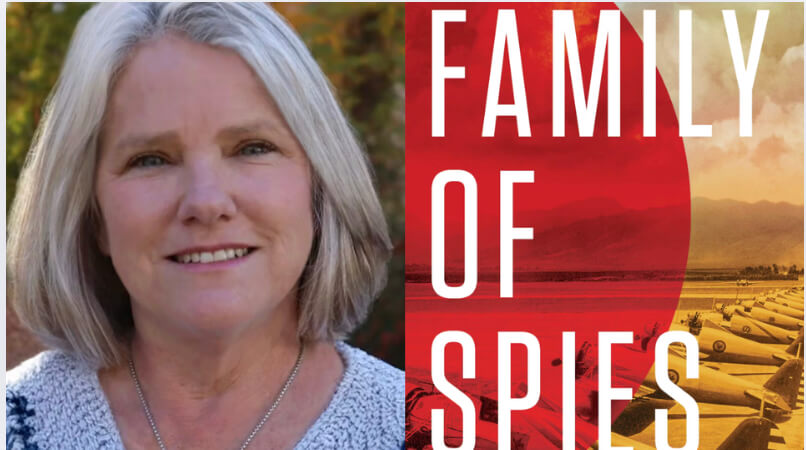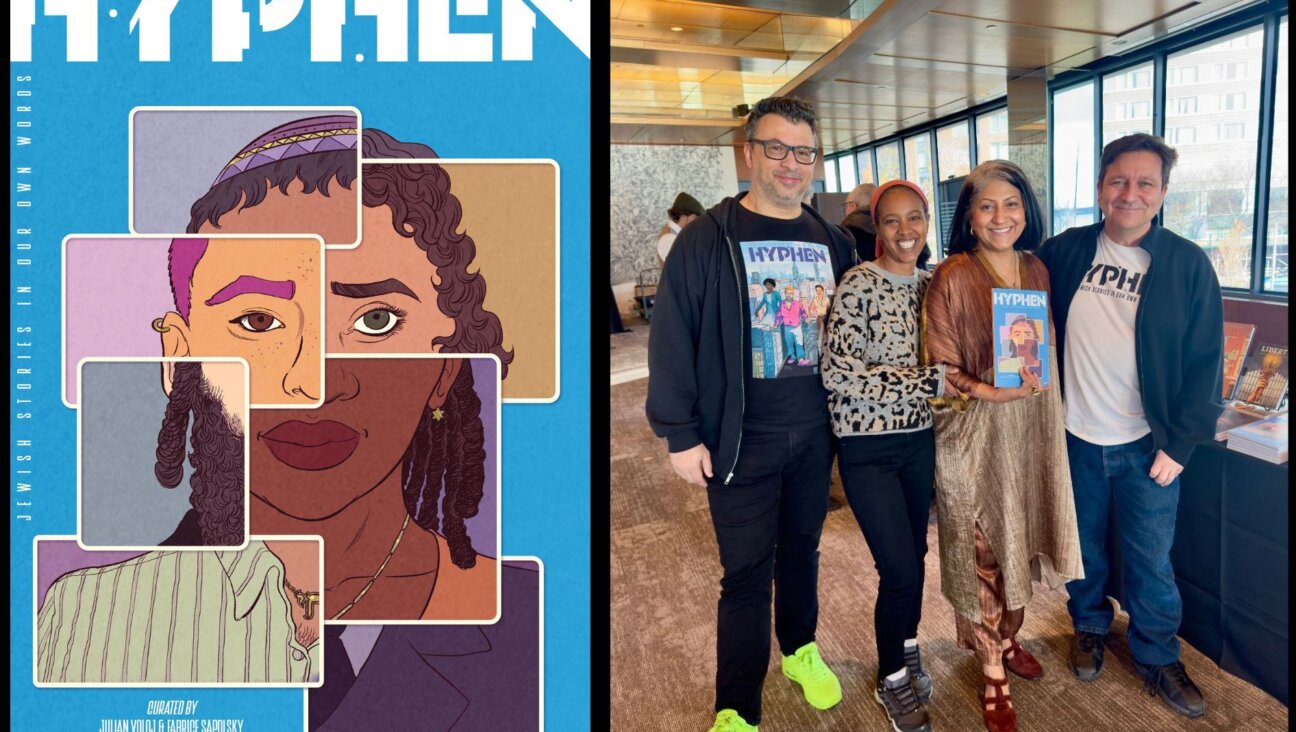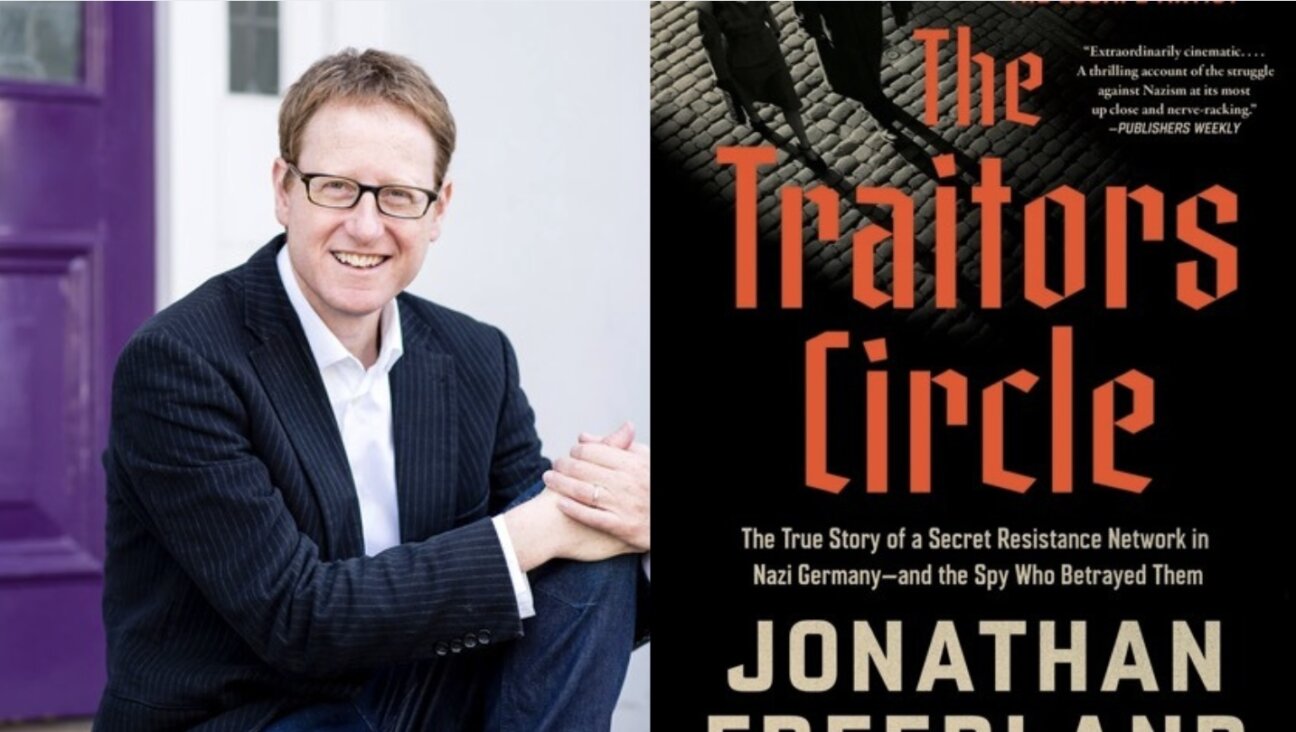Author Blog: An Intentional Detour

Graphic by Angelie Zaslavsky
In his last post, Daniel Gordis wrote about how ideas and the books in which they are expressed change history. His blog posts are featured on The Arty Semite courtesy of the Jewish Book Council and My Jewish Learning’s Author Blog Series. For more information on the series, please visit:
In my last few blogs, I wrote of my hope that The Promise of Israel can help foster a new kind of conversation about Israel, a conversation rooted in ideas and not focused on the conflict. Israel’s importance to the world, I suggest throughout the book, is its central idea: the Jewish State is a reminder of the dangers of unfettered universalism, a call to arms urging us to celebrate our differences.
But during the course of writing the book, it became clear that I needed to make an intentional detour in the argument. For as I spoke about the manuscript in front of audiences, it became clear to me: there’s a sense among many American Jews, particularly among the younger generation, that they really don’t need Israel any longer. American Jews feel completely secure, entirely accepted. They love Israel, but, they argue, they don’t really need Israel.
So I decided that I needed to include a chapter towards the end of The Promise of Israel to address this. I needed to remind them that Israel isn’t just a homeland far away, but it’s actually the generator that provides an enormous portion of the energy for the American Jewish community. Sans Israel, I decided to argue, American Jews would find themselves without perhaps the one issue that truly motivates and energizes their community. Without Israel, after all, what would remain to make Jewishness anything more than some anemic form of ethnic memory long-since eroded? About what else in Jewish life, besides Israel, do contemporary Jews feel shame, or anger, or exhilaration? What else in Jewish life evokes the same intensity of emotion? It’s actually hard to think of examples.
When JCC’s discuss whether or not they should be open on Shabbat, do people get exercised? Not really. When a Jewish home for the aging decides to cease offering kosher food, does the issue bring out the masses? In 2011, a proposed ban on circumcision in San Francisco that both saw Jews at the forefront and had clear anti-Semitic overtones; but did it provoke a stir anywhere near as powerful as what happened after an Israeli naval raid on a flotilla thousands of miles away the year before? Not at all!
When Israel’s Chief Rabbinate or some Israeli political party threatens to declare all Reform and Conservative conversions invalid, American Jews become enraged, even though that policy will affect very, very few of them. Why, though? Sometimes, it seems that American Jews get much more worked up about what Israeli rabbis who are not of their denomination say than they do when their own local rabbis speak!
We should not ignore this peculiar phenomenon, because it speaks to something very deep inside us. When we think about it, we understand that on some level, we intuit that a People without a state is missing something critical. We can’t articulate precisely why, but we know it’s true. American Jews, secure and confident though they are, need Israel because whether we want to admit it or not, even in the Diaspora, Israel is key to making the Jewish experience whole.
That is why issues in issue electrify American Jews in ways that many “domestic” Jewish issues don’t. This, too, is a conversation that I hope that The Promise of Israel will help to foster.
The Jewish Book Council is a not-for-profit organization devoted to the reading, writing and publishing of Jewish literature. For more Jewish literary blog posts, reviews of Jewish books and book club resources, and to learn about awards and conferences, please visit www.jewishbookcouncil.org.
MyJewishLearning.com is the leading transdenominational website of Jewish information and education. Visit My Jewish Learning for thousands of articles on Judaism, Jewish holidays, Jewish history and more.
















